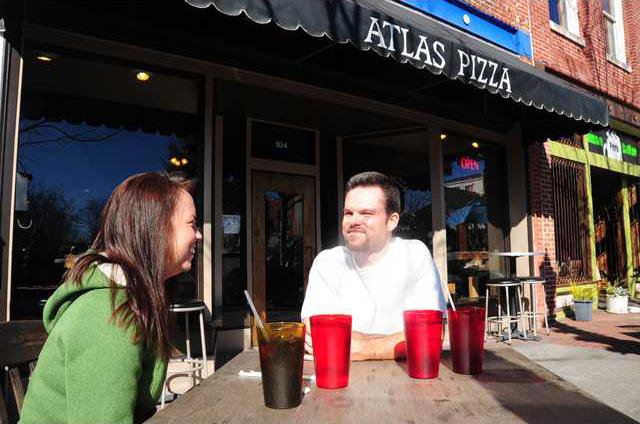Wish lists
Here's a look at a few of the requests local governments have made to the local legislative delegation.
- Push for revision for state House districts in Hall County in order to prevent fragmentation of the county's vote.
- Pass the city of Gainesville's revised charter allowing for an elected mayor position with more executive powers.
- Help find creative ways to fund Glades Reservoir, such as a special tax district that would fund infrastructure development.
- Support the deepening of the Savannah harbor to ensure the viability of industry in Hall County.
- Fund the construction of a $43 million multistory 120,000-square-foot building at Lanier Technical College that would serve as the "new front door" to the Oakwood campus and house classrooms, medical labs and a conference center.
- Reconsider a tax charged to health care providers. Northeast Georgia Medical Center officials say they pay between $500,000 and $600,000 each month in the fee, which is supposed to sunset in June 2013.
- Pass legislation that allows county governments to collect franchise fees from utility companies.
- Revisit sweeping statewide immigration legislation. City officials said the law created unintended consequences that will create impractical paperwork for local governments, calling some aspects of the bill an unfunded mandate.
- Change statewide law that keeps counties from having package stores in unincorporated areas.
- Repeal state law that bans cell phone use in schools.
- Reconsider a bill that prohibits local governments from adopting fire sprinkler ordinances. The bill could have a negative impact on fire insurance rates in Hall County.
- Do not renew a moratorium legislators set for raising assessments for home values.
When Georgia legislators return to Atlanta this week for the start of the 2012 legislative session, voters overwhelmingly want them to focus on jobs and economic development. Nothing else comes close.
A poll conducted for the Georgia Newspaper Partnership shows that 39 percent of registered Georgia voters believe the economy and job creation should be the top priority of the governor and General Assembly when the legislative session starts Monday morning.
James Watts, who dined at Longstreet Cafe Friday afternoon, is in lockstep with the 39 percent.
Watts, a 32-year-old in accounting, said he thinks unemployment is one of the biggest issues facing Georgians. He wants the legislature to do something to create jobs. He's just not sure what.
"I don't know all the answers," said Watts.
Meanwhile, legislative leaders and Gov. Nathan Deal say they think they have the antidote to Georgia's unemployment rate, which is currently above the national average.
Lawmakers said the poll confirms their belief that action is needed on job creation and said they will respond.
Deal plans to make an announcement on the subject this week, but aides did not offer details in advance.
"The governor on Tuesday will outline his vision for making Georgia more competitive for job creation, as he has always said he wants to make Georgia the most competitive place to do business in the Southeast," Deal spokesman Brian Robinson said.
Deal will speak at the Georgia Chamber of Commerce's annual Eggs & Issues breakfast on Tuesday and will also give his State of the State address that night.
Sen. Don Balfour, R-Snellville, the chairman of the powerful Senate Rules Committee, said he is eager to hear Deal's plans. Balfour said lawmakers can often best foster job creation by making the state more competitive, whether it's through economic development incentives or by changing the tax code.
Of the respondents to the Georgia Newspaper Partnership Poll, 12 percent said the focus should be on state taxes and spending.
"It's not a surprise at all we're talking jobs," Balfour said. "It's the No. 1, 2 and 3 issue, as it is in probably 45 other states."
The governor's announcement Tuesday is expected to include his plan for a tax overhaul, which he and others believe will spur job creation. There are already draft proposals floating around the Capitol to lower the state's individual income tax rate while raising the state sales tax or by adding a sales tax on groceries.
Senate President Pro Tem Tommie Williams, R-Lyons, said he is interested in shifting the state's tax focus from income to consumption taxes and that adding a state sales tax on groceries might make sense.
But, Williams said, "I don't know that we'll have the will to do that."
Lt. Gov. Casey Cagle, for one, has already come out squarely against the idea, and Deal has previously said he opposes taxing groceries.
Watts, who dined in Gainesville Friday, didn't like the idea, either. He thought income tax was more equitable than a tax on food.
"Everybody's got to eat," he said.
Flowery Branch resident Chad Moon didn't personally have a problem with a state tax on groceries. Since Moon doesn't have a family to feed, the tax might not be so burdensome. He conceded it might hurt others more.
And Christopher Davidson, owner of the downtown dress shop Christopher's, hopes legislators follow through on talk to lower income taxes. If state lawmakers have to make up the difference somewhere else, Davidson, like Watts, said he hopes it's not on food.
"People have to have food," said Davidson.
Poll respondents said they were dubious of adding sales taxes to groceries in exchange for an income tax cut.
Only 19 percent support the idea.
Sixty percent, however, said they would support increasing the tax on cigarettes by $1 a pack to pay for an income tax cut.
Davidson sided with the 16 percent. He said taxes should be on non-necessities, items that could be classified as "wants" instead of "needs."
Kelly McCutchen, president of the Georgia Public Policy Foundation, a think tank that supports free-market policies, said those numbers, and the opinions of folks like Watts and Davidson, do not surprise him.
"What that shows is most everyone buys groceries and not many people smoke," McCutchen said. "Most tax questions, people personalize and calculate, ‘I'm for the tax increase that other people are going to pay. I'm for the tax cut I'm going to receive.'"
Another 14 percent of respondents said health care should be the top concern.
Education was the primary concern for 10 percent, and no other issue reached double digits.
Georgians also strongly said they support changes in state ethics laws to limit lobbyists' largesse at the
Gold Dome.
Retired postal worker William Glidewell of Lincolnton wants both disclosure of lobbyists' gifts as well as caps on the value of dinners, tickets and trips lobbyists bestow on lawmakers.
"I'm sort of old-fashioned," said Glidewell, 79. "I don't think they should give them anything. It's a bribe for support."
Meanwhile, Deal will also highlight a new major health care initiative next week, Robinson said, noting that 14 percent of poll respondents said that issue was their primary concern.
"We have some important news we'll be making on health care," Robinson said. "We're going to lay the groundwork for having the doctors and the medical infrastructure in place that we need to serve a growing population here."
Mitchell Wright of Covington is among them. The 88-year-old Republican sees it as economic development.
"You bring in casino gambling, I think that will be a big source of revenue," Wright said, adding that Underground Atlanta and Savannah would be logical locations. "The lottery is the same thing as casino gambling, absolutely."
The poll also asked a series of questions regarding ethics at the state Capitol, and the results show overwhelming support for tighter controls on lobbyists' spending as well as greater transparency.
Several organizations have teamed up to form the Georgia Alliance for Ethics Reform to advocate for changes in state ethics laws. Their proposals have included capping the value of lobbyist gifts to lawmakers. Julianne Thompson, a co-organizer of the Georgia Tea Party Patriots and a member of the alliance, said the poll shows their ideas have strong public support.
"Whether or not the Legislature is behind it remains to be seen," she said. "I hope they look at the results of your poll. I hope they look at the calls and emails and the public outcry that people are so passionate about when it comes to ethics and accountability."
Aaron Gould Sheinin of the Atlanta Journal Constitution and Susan McCord of The Augusta Chronicle contributed to this article.

